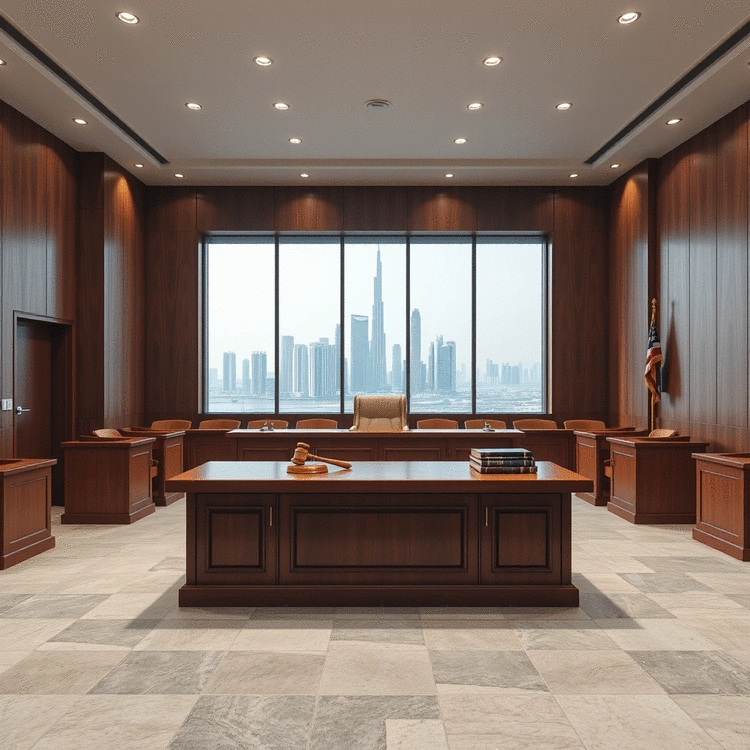Filing the Claim
All relevant documents are submitted to the court.
2025-11-22
Understanding the court hearing process is essential to navigating the legal system, especially in a unique environment like Dubai. With distinct procedures and regulations, being well-informed can significantly impact your experience. Here’s a closer look at the key points to help you prepare effectively for your court hearing.
This visual outlines the key stages of the court hearing process in Dubai, emphasizing the structured approach to legal proceedings. For a broader understanding of legal proceedings, you may also want to explore understanding criminal defense lawyers in the region.
All relevant documents are submitted to the court.
A date is set for both parties to prepare.
Both sides present their cases before a judge.
The judge delivers the final verdict.
Navigating the court hearing process can feel overwhelming, especially if it’s your first time. In Dubai, understanding the stages of legal proceedings is crucial for anyone involved in a case. From filing a claim to the final judgment, each phase is designed to ensure fairness and transparency.
The court procedures in Dubai include several key stages that help manage cases efficiently. First, you start with the filing of the claim, where all relevant documents are submitted to the court. After that, the court sets a date for the hearing, allowing both parties to prepare their arguments.
Next comes the hearing itself, where both sides present their cases before a judge. This is complemented by witness testimonies and the submission of evidence. Finally, the judge deliberates and delivers a judgment, which can be followed by an appeal if necessary. Understanding these steps can help you feel more prepared when facing the court. For more detailed information on court operations, see our insights on recent Dubai court legal precedents.
When it comes to court systems, not all are the same! The Dubai courts operate under a unique set of rules compared to the DIFC (Dubai International Financial Centre) and ADGM (Abu Dhabi Global Market) courts. While the Dubai courts generally focus on civil and criminal cases, the DIFC and ADGM are tailored for commercial matters, often utilizing a more streamlined procedure.
One significant difference lies in the legal framework: DIFC and ADGM follow common law principles, while Dubai courts adhere to Islamic law. This can affect everything from the types of cases heard to the way evidence is presented. Being aware of these differences can be vital depending on the nature of your case.
The Dubai Legal Affairs Department plays a critical role in overseeing legal matters and ensuring compliance with local laws. It provides guidance and support for various legal processes, making sure that everything aligns with the judicial system's standards. Similarly, the Dubai Public Prosecution is responsible for prosecuting criminal cases and ensuring that justice is served.
These entities work together to uphold fairness in the court system, assisting both plaintiffs and defendants throughout the hearing process. For anyone involved in legal proceedings, understanding their roles can empower you to navigate the system more effectively.
On the day of your hearing, knowing what to expect can ease your nerves. Timing is key, and understanding courtroom etiquette is essential to make a good impression.
Here's a brief recap of the key points discussed so far:
Navigating court hearings can be quite an experience! To ensure you’re well-prepared, I’ve compiled a comprehensive checklist that covers everything you need to bring and do before stepping into the courtroom. Having this checklist not only eases your stress but also makes a positive impression on the court.
When you prepare for your court hearing, think of it as gearing up for an important presentation. You want to be ready! Here’s what I recommend you include in your preparation:
It’s natural to have questions about what to expect during court hearings. After all, understanding the process can significantly reduce anxiety. Below are some common questions I often hear:
As I’ve observed through UAE Court Watch, understanding your rights and the court procedures can empower you and make your experience more manageable. If you have specific concerns or unique situations, don’t hesitate to consult with a legal expert for tailored advice! You can also find more information about civil litigation in Dubai.
To wrap up our discussion on navigating court hearings in Dubai, it’s essential to remember that preparation is key. Having a clear understanding of the procedures can ease your mind and help you present your case effectively. For further reading, consider exploring understanding Dubai court judgments.
Don't underestimate the importance of appropriate conduct, personal readiness, and being informed about your rights. After all, a well-prepared individual tends to make a stronger impact in court. What are your thoughts on preparing for a hearing? I'd love to hear about your experiences!
Now that you’re equipped with this information, take proactive steps to prepare for your court hearing. I encourage you to utilize the checklist, ask questions, and seek legal advice if needed. Being informed is your best strategy! If you have any experiences or tips to share, please drop a comment below—your insights could really help someone else facing a similar situation!
Here is a quick recap of the important points discussed in the article:
